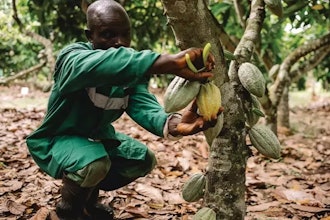WAUSAU, Wis. (AP) — Wisconsin ginseng growers are seeking new customers as tariffs in an escalating trade war with China will raise the price by 15 percent for Chinese consumers.
Harvests will begin in the fall but export declines will take a while to measure, the Wausau Daily Herald reported.
Wisconsin grows more than 98 percent of all U.S. ginseng, said Bill Kaldunski, president of the Ginseng Board of Wisconsin. Ginseng exports are an $8-million-per-year industry.
The ginseng industry in central Wisconsin is braced for a large impact, said Kaldunski. China is one of the largest consumers of American ginseng.
Tariffs went into effect at a time when the industry isn't making a lot of sales. Most of the ginseng meant to head overseas had already been shipped.
"But we're hearing more now, and buyers are being more aggressive," Kaldunski said.
Ginseng is most commonly taken in tea and is also used as a spice in food. Ginseng products such as beer, extract pills and herbal energy drinks could help growers and distributors like the Wausau-based Hsu Enterprise find new customers in the U.S.
"The stereotypical American consumer is not super familiar with ginseng, but probably knows it might be good for them," said Will Hsu of Hsu Enterprises. "But because they didn't grow up with the product ... they don't know the benefits."
Hsu said those products are aimed toward people "seeking lifestyle or health changes."






















